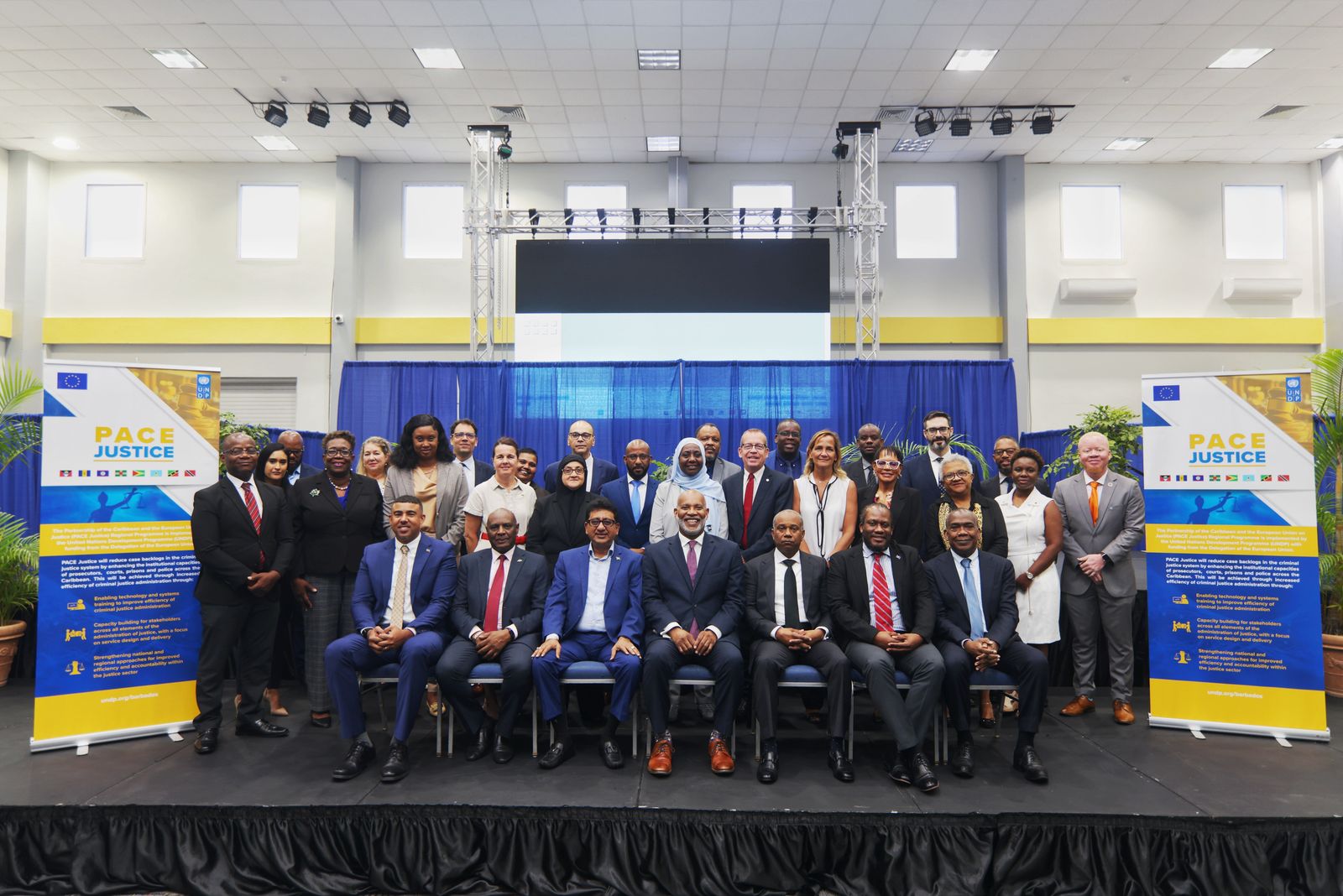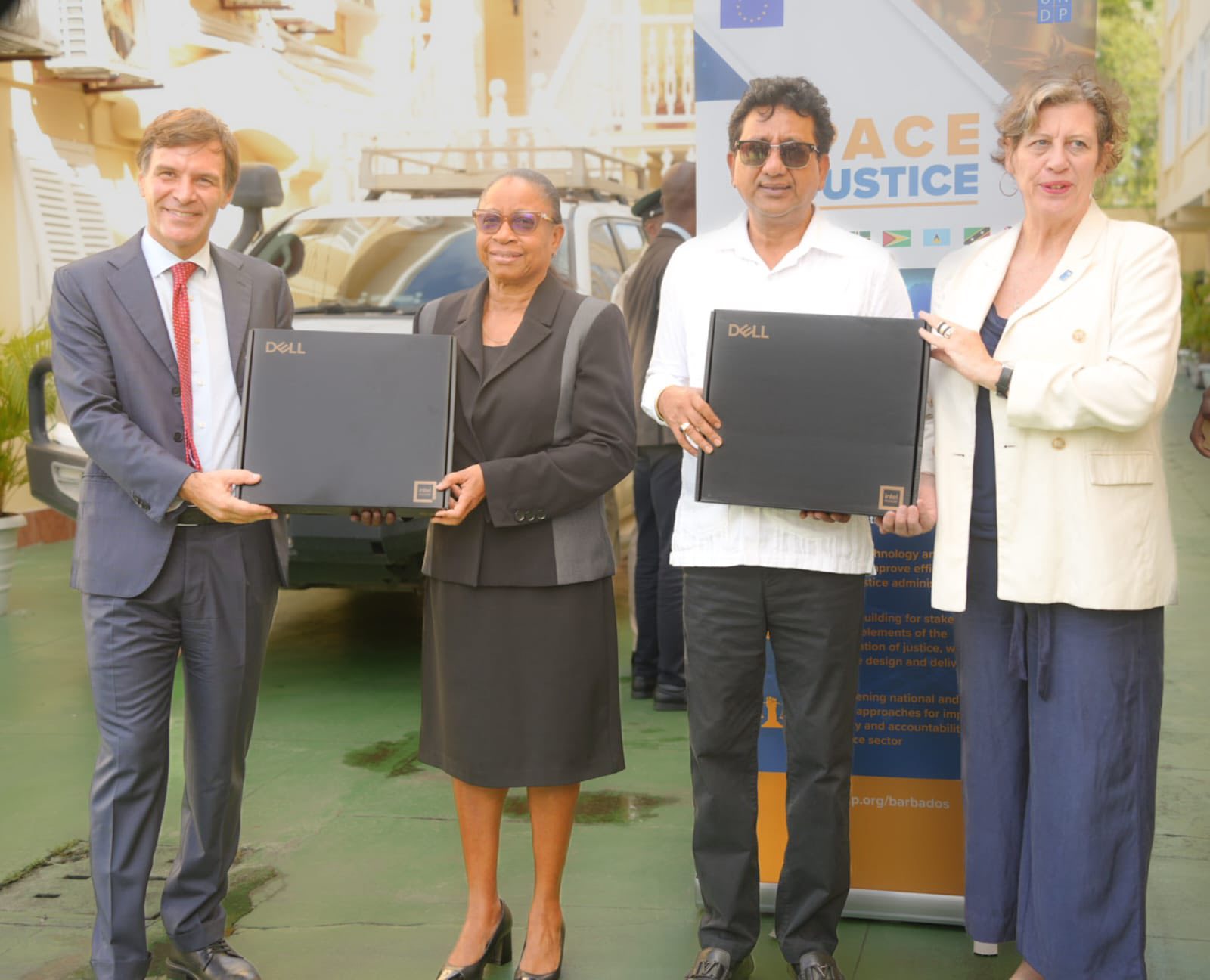
Funded by the European Union (EU) the PACE Justice Project aims to strengthen and enhance the institutional capacities of police forces, prosecutors, and courts across the Caribbean region, enabling them to manage the backlog of criminal cases effectively and efficiently within the justice system. The Project is being implemented in eight Caribbean countries: Antigua and Barbuda, Barbados, Belize, Dominica, Guyana, St. Kitts and Nevis, St. Lucia, and Trinidad and Tobago
Read More
– President Ali describes land ownership as a pathway from poverty to financial stability
Decades of anticipation finally came to an end for 125 residents of Cotton Tree on the West Coast of Berbice (WCB), after they received formal titles to lands they and their ancestors have been living on for years.

As Guyana’s legal year begins next week, the justice system welcomes a donation of IT software and hardware worth US$400,000 to improve service delivery.
Read MoreMr. Nandlall attended Mon Repos Primary School, Queen's College, University of Guyana - Turkeyen, Georgetown and Hugh Wooding Law School - St. Augustine, Trinidad. He was admitted to practice at the Guyana Bar on the 21st October, 1998 and admitted to practice at Bar of Trinidad and Tobago in 2007.

Attorney General & Minister of Legal Affairs